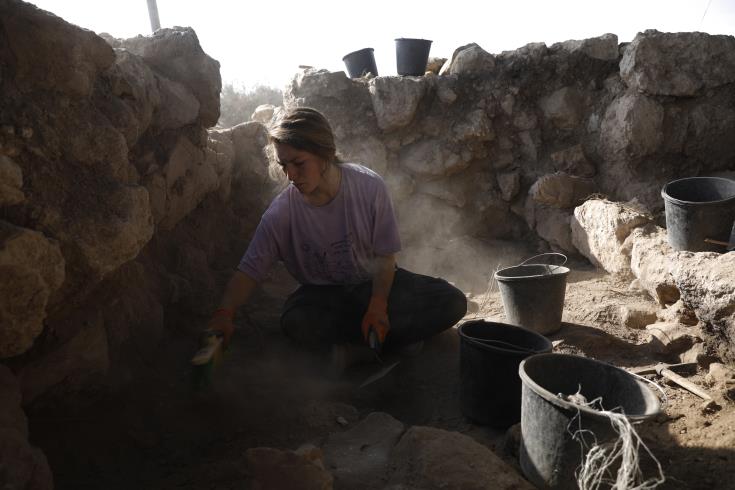Israeli researchers have unearthed an ancient human vertebra dating back 1,5 million years, the Israel Antiquities Authority (IAA) announced today.
"It's the oldest evidence of an ancient ancestor ever found in Israel," he said. The finding is part of a new study conducted by Bar Ilan University and Ono Academic College in central Israel, the University of Tulsa in the United States, and the IAA.
The bone was unearthed in 1966 in the Ubeidiyah area on the south coast of the Galilee Sea in northeastern Israel. Excavations in Ubeidiya have recently resumed, and during the reprocessing of bones and tools found in the area, researchers have identified the specific bone that has been identified as a lumbar vertebra. The research team discovered that it belonged to a child, aged 6-12 years, tall enough for his age, who would reach a height of 1,80m. if he had lived to adulthood, according to calculations.
According to the study, published in the journal Scientific Reports, the migration of humans from Africa to the rest of the world was not something that happened all at once, but evolved in waves. The first of these arrived in present-day Georgia 1,8 million years ago and the second passed through Ubeidiya 1,5 million years ago, according to Israeli researchers.
Comparing the lumbar vertebrae of Ubeidiya with the fossil bones found in Dmanisi, Georgia (where the oldest, perfectly preserved, complete human skull has been found), the researchers found that these are two different species of humans.
These are two different types, in terms of their presentation, the construction and use of tools and the location they chose to live. According to Professor Miriam Belmaker of the University of Tulsa, Israel has a Mediterranean climate, while Georgia has a drier, savannah habitat.
